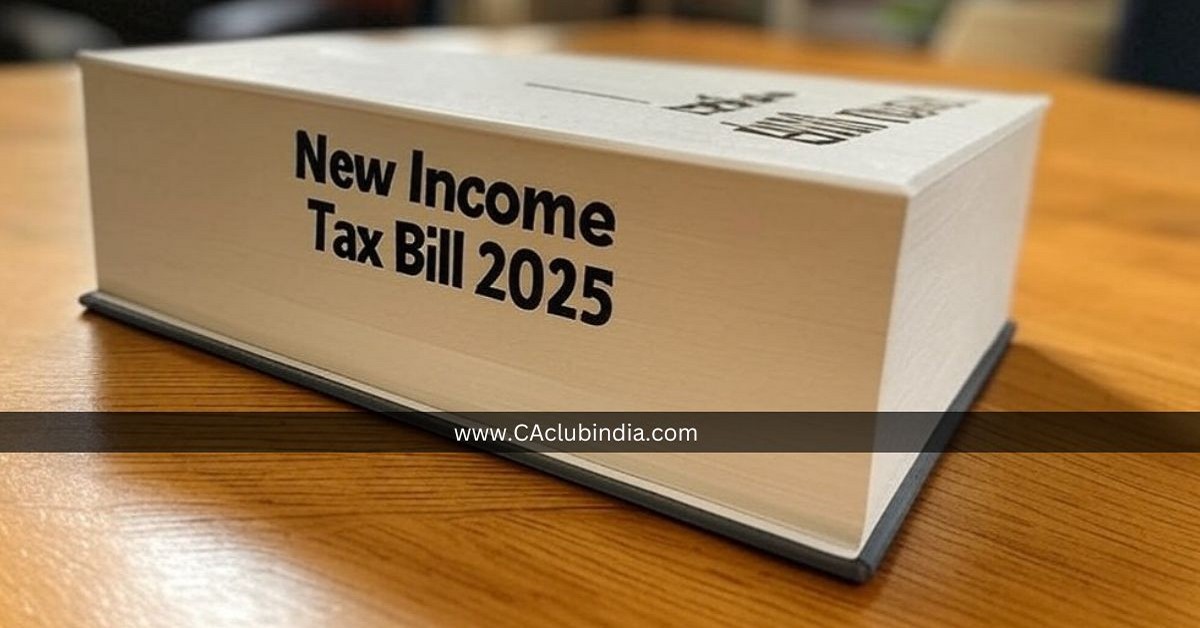The Indian government has introduced a new Income Tax Bill, replacing the Income Tax Act, 1961, which has undergone multiple amendments over the decades. The new bill aims to simplify tax laws while maintaining key provisions from the previous legislation.
Major Highlights of the Income Tax Bill 2025
The New Bill is Shorter
The Income Tax Act, 1961, as amended in 2024, spans 823 pages, whereas the new Income Tax Bill is 622 pages long, making it 201 pages shorter. This is expected to make tax compliance easier for individuals and businesses.

Structure of the New Income Tax Bill
The new bill consists of:
- 536 sections
- 23 chapters
- 16 schedules
This structural refinement aims to make tax laws more accessible.
Next Steps: Parliamentary Standing Committee Review
Once passed in Parliament, the bill will be referred to the Parliamentary Standing Committee on Finance, which will conduct further consultations before final implementation.
Presumptive Income Tax Limit: Introduction of a Range
The new bill introduces a range for presumptive income tax limits, within which tax audit applicability will be determined. This is a key shift in tax compliance regulations.
Increased 44AD Limit for Businesses and Professionals
- The presumptive taxation limit under Section 44AD has been raised for businesses from ₹2 crore to ₹3 crore.
- For professionals, the 44ADA limit has been increased from ₹50 lakh to ₹75 lakh.
This move aims to benefit small businesses and professionals by reducing compliance burdens.
Extended Tax Audit and Filing Deadlines
- Tax audit filing deadline: Extended from September 30 to October 31.
- Income tax filing deadline: Extended from October 31 to November 30.
This provides additional time for taxpayers and professionals to comply with tax filing requirements.
Tax Audit Remains Exclusive to Chartered Accountants
There were speculations that Company Secretaries (CS) and Cost & Management Accountants (CMA) might be included in tax audit scope. However, Section 515(3)(b) explicitly defines an "accountant" as a Chartered Accountant (CA). This provision has provided clarity and relief to the CA community.
Introduction of 'Tax Year' Instead of AY & PY
The new bill replaces the traditional "Assessment Year" (AY) and "Previous Year" (PY) with a unified "Tax Year". This change simplifies tax terminology, making it more understandable for taxpayers.
No Changes in Capital Gains Tax Structure
The Long-Term Capital Gains (LTCG) and Short-Term Capital Gains (STCG) taxation remains unchanged from the previous financial year.
Incentive for Digital Transactions with Audit Relief
The bill continues to encourage digital transactions, offering tax audit relief for businesses with turnover up to ₹10 crore that primarily deal in digital payments.
Conclusion
The new Income Tax Bill 2024 brings structural refinements, deadline extensions, and digital transaction incentives, while maintaining familiar tax provisions. As it moves through parliamentary processes, further clarifications and refinements may emerge.
Click here to download the draft of Income Tax Bill 2025







 CAclubindia
CAclubindia
